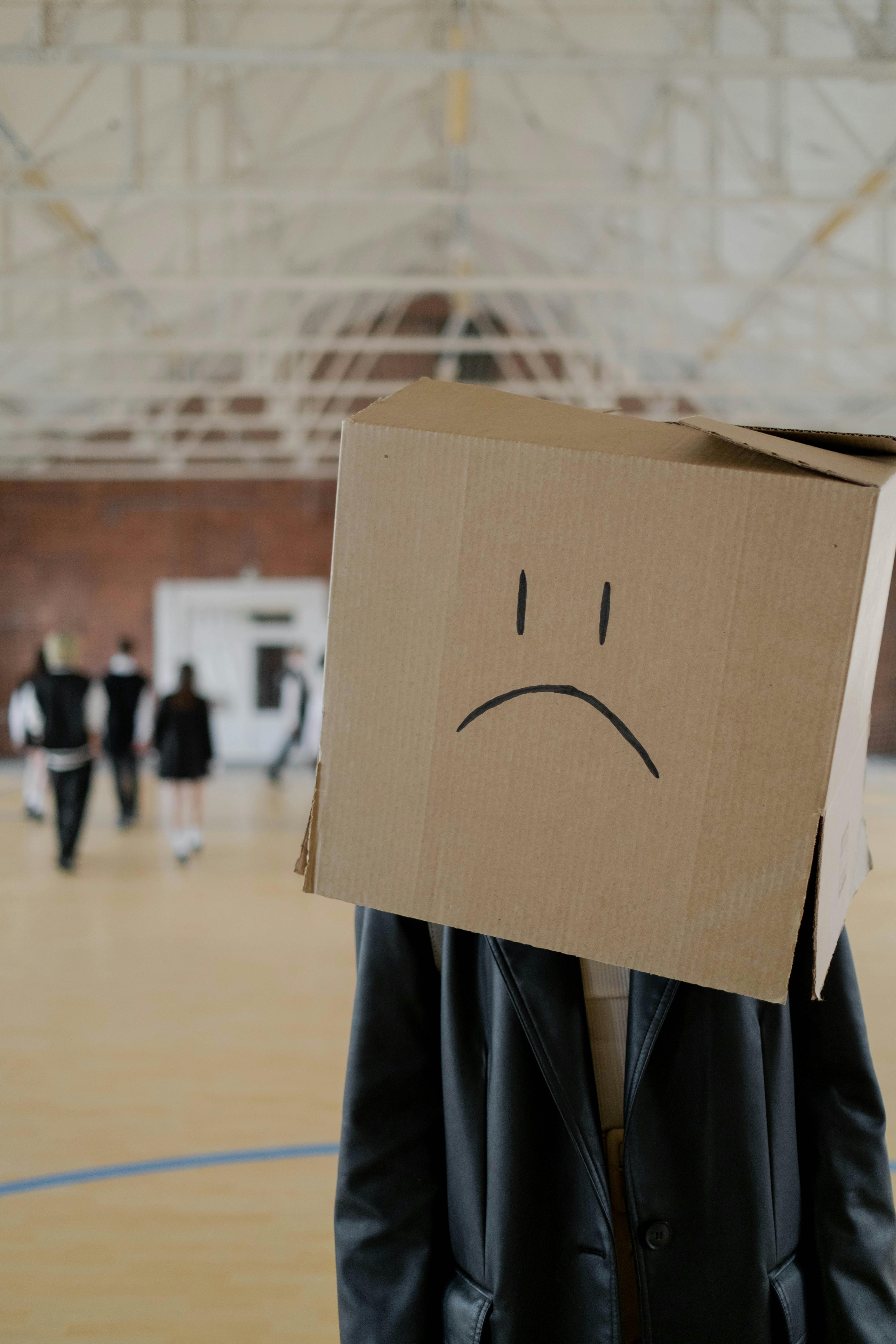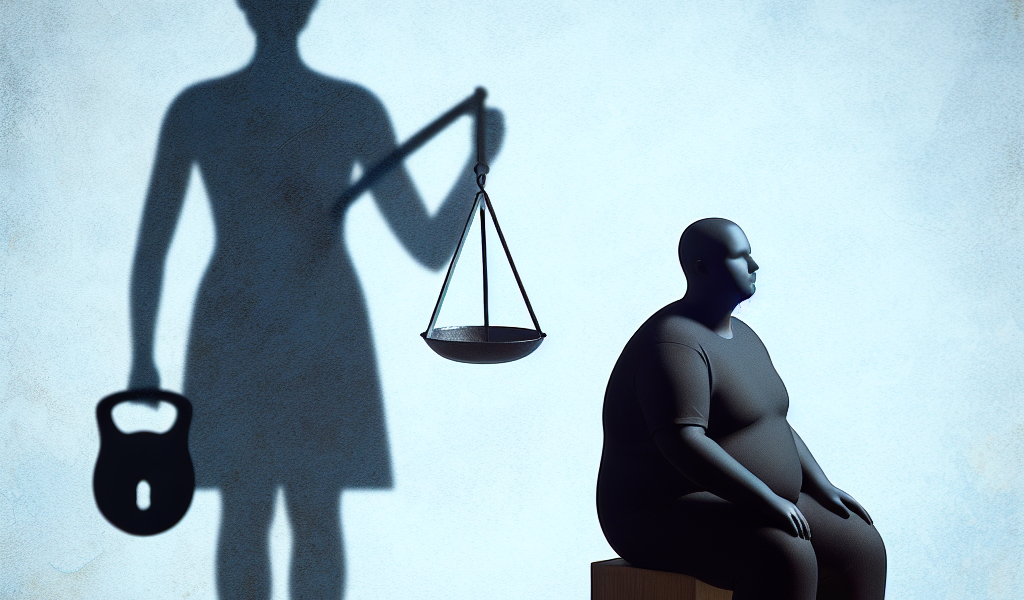How Obesity And Bullying Are Connected
As a collective, we’re about to explore an important issue: the connection between obesity and bullying. Living with obesity is a challenging and life-threatening condition that can unfortunately lead to an early demise, making the fight to overcome it even more critical. But there’s an often overlooked aspect to this fight, which is the harsh reality that those living with obesity often face bullying. The cruel connections between these two issues cannot be underestimated, necessitating a comprehensive understanding to create effective solutions.

Understanding Obesity and Its Stigmas
Obesity, by definition, is a complex health issue characterized by having an excessive amount of body fat. It is typically measured using the Body Mass Index (BMI), a tool that measures a person’s weight relative to their height. Obesity is defined as having a BMI of 30 or higher. It’s a global problem that has been linked to numerous health complications, including type 2 diabetes, heart disease, and certain types of cancer.
Common social stigmas surrounding obesity
Unfortunately, obesity is also associated with various social stigmatizations. Often people who are obese are falsely perceived as lazy, undisciplined, or lacking willpower. Society persistently shames and blames the obese individuals for their condition, leading to feelings of guilt and humiliation.
Role of media and society in shaping these stigmas
The media and society at large play crucial roles in shaping these stigmas. Characters who are overweight or obese in television shows, films, and books are often depicted as objects of ridicule or as inherently flawed due to their size, which reinforces negative stereotypes. Advertisements often depict an ideal body image that is far from the reality of many individuals, further fueling weight-based prejudice and discrimination.
Recognizing Bullying
Bullying is defined as intentional, repeated harmful acts, words, or other behaviors, such as name-calling, threatening, or shunning, committed by one or more children against another. It is a pervasive and serious issue across schools worldwide.
Various forms of bullying
Bullying can take many forms such as physical (hitting, pushing), verbal (name-calling, teasing), social (excluding, spreading rumors), or cyberbullying (online harassment).
Effects of bullying on well-being
Bullying can profoundly impact the overall well-being of victims, manifesting in physical, emotional, and academic disturbances. It often leads to lower self-esteem, higher incidences of depression and anxiety, and poor school performance.

Who Are The Bullies?
Bullies are not a homogenous group with an easily recognizable profile. They come from diverse backgrounds, and their reasons for bullying can vary significantly.
Understanding the profile of bullies
Typically, bullies may exhibit aggressive behaviors, lack empathy, desire power or control, have a positive attitude towards violence, or have been victims of bullying themselves.
Factors contributing to bullying behavior
Numerous factors contribute to an individual becoming a bully. These can include individual characteristics (such as low self-esteem or a desire for power), family dynamics (like abuse or neglect at home), and societal factors (such as cultural norms or media influences).
Common characteristics of obese individuals who are bullied
Obese individuals who are bullied often exhibit characteristics of social isolation, low self-esteem, depression, and poor academic performance. They are often targeted due to their physical appearance, fitting the stereotyped victim profile of bullies.
Connection Between Obesity and Bullying
When considering the connection between obesity and bullying, it’s crucial to understand the role societal norms play.
Psychological perspectives on bullying obese individuals
Bullies often target peers who deviate from norms, and obesity is often considered such a deviation. This exclusion results from the psychological desire to fit in and gain social approval by stigmatizing others who are considered “other” or “different.”
Societal norms and their impacts
Society’s bias towards fit and thin bodies has reinforced negative attitudes towards obese individuals, making them easy targets for bullying. Bullies, subconsciously or consciously, adhere to societal norms, excluding or teasing those who don’t fit this ideal.
Studies supporting the connection between obesity and bullying
Several research studies have demonstrated the connection between obesity and bullying, revealing that obese children are more likely to become victims of bullying. Such bullying often perpetuates a vicious cycle – making it even harder for the victims to control their weight – thereby exacerbating the problem further.

The Psychological Impact of Obesity-related Bullying
Obesity-related bullying has a significant psychological impact on the victims, leading to lower self-esteem, body image dissatisfaction, feelings of loneliness, and higher rates of depression and anxiety.
Effects of bullying on emotional health
Being subjected to constant humiliation and ridicule impacts a person’s emotional health. The victims often feel intense sadness, hopelessness, and may develop chronic depression over time.
Connection to anxiety and depression
Being repeatedly bullied can lead to severe anxiety and depression. The anticipation of bullying can also cause increased stress, leading to further physical and mental health challenges.
Self-esteem issues arising from obesity-related bullying
Frequent victimization due to one’s body size can lead to body dissatisfaction and plummeting self-esteem. Low self-esteem can then contribute to social isolation and poor academic and physical performance, further compounding the problem.
Physical Health Implications
While the psychological effects of obesity-related bullying are evident, the impact on physical health is equally concerning.
Impact of bullying on physical health and obesity
Bullying can exacerbate obesity as victims often resort to emotional eating or avoid physical activities due to fear of ridicule. Bullying also increases stress levels, which can lead to weight gain over time.
Role of stress and anxiety in exacerbating obesity
Stress and anxiety, often resulting from bullying, are known to affect metabolism and dietary habits, leading to weight gain. Bullying victims might resort to comfort foods high in sugar and fat, further contributing to obesity.
Existing literature on the subject
Existing research shows a direct link between obesity-related bullying and poor physical health outcomes. Victims often report stress-induced ailments like insomnia, headaches, and stomach problems, highlighting the critical need to address bullying in obesity prevention strategies.

Role of Educational Institutions
Schools, as primary settings where bullying takes place, have a critical role in preventing obesity-related bullying.
Bullying and body shaming in school environment
The school environment can perpetuate the cycle of obesity-associated bullying by indirectly promoting body shaming. Unchecked teasing or body jokes by peers and even teachers can lead to a toxic learning environment.
Role of educators in preventing bullying
Educators play a crucial role in preventing bullying. They can intervene during episodes of bullying, implement anti-bullying policies, and foster an inclusive and respectful environment where body diversity is appreciated and celebrated.
Education policies addressing obesity-related bullying
Schools need to adopt policies that explicitly address obesity and bullying, with strategies for prevention, intervention, and support for victims. Anti-bullying policies should outline clear consequences for bullying actions and provide ongoing training and resources to teachers in identifying and addressing bullying.
Possible Solutions & Interventions
Effective interventions and changes in societal attitudes are required to reduce obesity-related bullying.
Effective anti-bullying programs
School-based anti-bullying programs that promote resilience, empathy, and respect for diversity have been successful in curbing bullying.
Societal changes that can reduce obesity-related bullying
Societal change is also needed. We must challenge the stigma around obesity by raising awareness about its causes and complications. Encouraging body acceptance and celebrating diversity can also help shift the general prejudice towards obesity.
Role of counseling and family support
Counseling is vital for victims of bullying to help them understand that the problem lies with the bully, not with them. Family support is also crucial. Families can reinforce positive body images and self-esteem, helping children stand up against bullying.

Evaluating These Solutions
It’s crucial to evaluate these interventions to understand their effectiveness and limitations.
Examination of case studies
Studies of interventions that have effectively reduced bullying provide valuable insights into practical tactics and strategies that work and can be replicated or adapted for other settings.
Statistical data supporting these interventions
Data from such programs point to a reduction in bullying incidents, suggesting that these interventions indeed have a positive impact. Also, the emotional and physical health of victims who received support and intervention showed significant improvements.
Limitations of current solutions
While many interventions have shown promising results, their effectiveness can be limited by various factors, such as lack of consistent implementation, limited resources, and inability to change broader societal attitudes.
Conclusion and Future Considerations
Obesity and bullying are interconnected issues that require comprehensive measures across various domains – from schools to homes, society to media.
Lessons learned
We have learned that bullying can further compound the problem of obesity and its psychological and physical health impacts. Simultaneously, society’s stigmatization of obesity and overweight individuals perpetuates the cycle of bullying and health issues.
Areas of further research
Further research is required to understand how best to structure interventions to yield the most significant results. More robust studies are also needed to explore how media portrayal of body types and weight interacts with societal norms and personal attitudes to influence bullying behaviors.
Call to action for reducing obesity-related bullying
The fight against obesity-related bullying requires collective action. We need to raise awareness about the harms of weight-based stigma and work towards creating a society where diversity is appreciated, and everyone feels valued and accepted, irrespective of their physical appearance. Everyone has a role to play in this mission – individuals, families, educators, policymakers, and the media can all contribute to fostering a more understanding, empathic and inclusive society.

